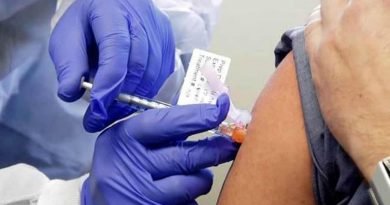Advisory Committee recommends meticulous surveillance protocol to block COVID 3rd wave
JAMMU: The Advisory Committee constituted by the Government has recommended meticulous surveillance protocol during the period between June and December 2021 to monitor and block COVID-19 third wave in the Union Territory of Jammu and Kashmir, which if not interrupted may be more severe than the first and second wave.
The Advisory Committee, in its action plan submitted to the Government, has mentioned that COVID-19 third wave is a possibility and only shrewd sustained actions can change its occurrence from a ‘Fact into a Fiction’.
“The third wave could be mild, less severe or more severe based on interplay of virus, variants and vaccine. Generally speaking, the third wave if not interrupted is more severe than the first or second wave”, the Committee said, adding “COVID third wave could occur within 6 months of the decline of the second wave and calls for intensive surveillance for the period between June and December 2021”.
Stating that third wave could occur in any of the seven population groups, the Committee said, “it is speculated that the population segments involved in the first and second wave may be less affected or not affected at all as such children, pregnant women and the suburban population needs to be watched out more closely”.
The Committee has recommended meticulous surveillance protocol to monitor and block COVID third wave in the Union Territory of Jammu and Kashmir. This protocol works around several principles—Sequencing, Travel Advisory Policy, COVID Appropriate Discipline, Extended COVID Appropriate Discipline Protocol and Serosurveys to evaluate population susceptibility and aggressive vaccination policy and program.
It has stressed that an expert team well-versed with epidemiology and viruses needs to monitor the situation on weekly basis and raise early alarms in any of the parameters which need attention and corrections.
About sequencing, the Advisory Committee has mentioned that the development of variants in J&K UT needs to be monitored by sequencing of the SARS-CoV-2, the agent for COVID-19 and around 5% of the positive swabs must be sequenced and sequencing data made available to the expert team on weekly basis.
“The samples should be randomly selected from the local general population and must selectively include samples from travellers particularly from States with high prevalence of variants and samples from small outbreaks with unusual epidemiological features”, the Committee said and recommended that Government should explore possibility of establishing two labs for doing sequencing studies (one in Kashmir and another in Jammu) and till those labs are established, the national reference labs could be approached for facilitating the results of samples generated from the Union Territory”.
It has further suggested drafting of revised policy for travel advisory, planning and testing for all visitors to the Union Territory with particular stress to reduce the introduction of variants into the Union Territory.
“The swab test results for SARS-CoV-2 of all visitors to the Union Territory must be made mandatory. However, the use of the Rapid Antigen Test to detect positive cases in asymptomatic travellers is grossly inadequate and this test should not be used in this population”, the Committee said, adding “Rapid Antigen Test has a sensitivity of around 50% and specificity of 98% and can be used safely in symptomatic subjects to diagnose infection and the patients who are negative by Rapid Antigen Test need to be tested by RT-PCR”.
“If a visitor to Union Territory is detected positive, he/she must be put under supervised quarantine to block transmission. This policy needs to be strengthened if he/she has returned from abroad or such regions in India with high prevalence of variants”, the Advisory Committee further said.
About COVID Appropriate Behaviour, the Committee said that advisory in this regard must be upgraded and it should incorporate the lessons learned from additional routes of transmission of the pathogen in the second wave, adding “the outcome of advisory on community needs to be monitored on weekly basis by evaluation of positive rates district wise and province wise. Any alarm on the positive rates must excite a corresponding response to COVID-appropriate practices in the region”.
“An aggressive vaccination program in all eligible groups is a powerful tool to evade the possibility of third wave and this should lay focus on vaccine availability; fighting vaccine hesitancy through public education; coverage of several population groups through innovative measures and diversifying the type of vaccine so that cumulative benefits of vaccination programs are gained rather than that of a single vaccine brand”.
“The Sero-surveys are crucial in evaluating the susceptibility of population groups to the next COVID-19 wave and need to be performed regularly”, the report said, adding “several population-based Sero-surveys have been done by ICMR and the Union Territory of J&K has actively contributed their part in such Sero-surveys”.
The Committee has stressed that Sero-surveys should be done at regular intervals in defined population groups to evaluate susceptibility and degree of herd immunity in the population.


